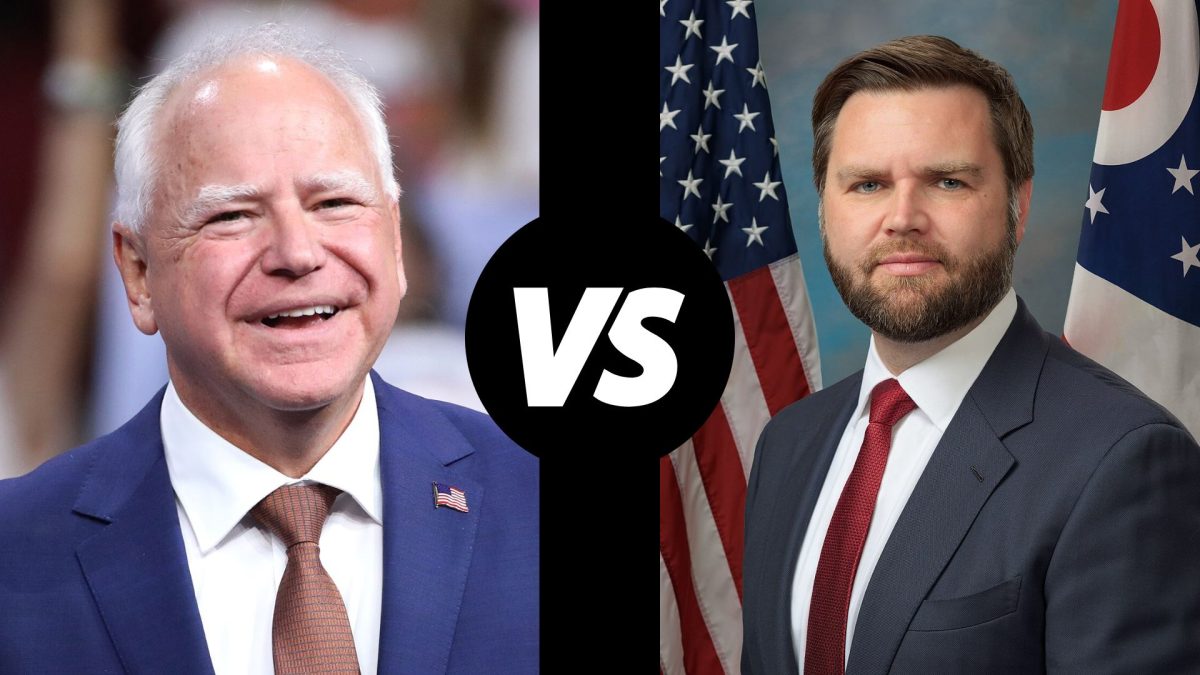Last week, on Tuesday, October 1, CBS News hosted the first and only vice presidential debate of the 2024 election, set against the backdrop of downtown Manhattan.
Facing off were JD Vance, former President Trump’s running-mate, and Tim Walz, the twice-elected governor of Minnesota and Vice President Harris’s running-mate. Their first-ever face-to-face exchange took place on stage just minutes before the debate began, setting the tone for a night that would test both candidates’ poise under pressure.
For Vance, the debate was a critical moment to break from the shadow of Trump’s all too common and often controversial rhetoric.
Meanwhile, Walz had a chance to introduce himself, along with his character and strengths to millions of Americans as a politician ready to take on the nation’s second-highest position.
From the start, it was clear that Walz was battling nerves. His opening response saw him mistakenly refer to Israel as Iran, a slip that he quickly corrected, but it set the tone for a performance filled with stumbles.
Whether he was speeding through answers or hesitating mid-sentence, Walz struggled to maintain a steady cadence, which may have left viewers wondering if he was truly ready for the national stage.
On the other side, Vance displayed his typical defiance, but this defiance often came at the expense of reason. At one point, he dismissed research-backed claims by economists, labeling them “lacking in common sense.”
It’s hard to overlook the irony when Vance’s solution to issues like school shootings was to “make doors stronger” a resolution that lacks any real “common sense.” Better locks and windows?
Vance’s avoidance of the root issue; America’s desperate need for comprehensive gun reform demonstrated his willingness to sidestep uncomfortable truths.
Along with his futile claims, Vance lacked the professionalism and character of a person running for the second most important job in America. Seven times during the ninety-minute debate Vance referred to those crossing the US-Mexico border from a variety of countries as “illegal aliens.” This title is dehumanizing, and rude, and confirms Vance’s extremist views.
The debate, which ran for ninety minutes, saw Vance referring to immigrants as “illegal aliens” not once, but seven times. His dehumanizing language reflected his alignment with extreme views, further highlighting his lack of sensitivity and statesmanship—qualities essential for a potential vice president.
His positions on critical issues like abortion stood out as clear, coherent, and compassionate. On a question about the overturning of Roe v. Wade, Walz offered two memorable points: “How can we as a nation say that your life and your rights, as basic as the right to control your own body, is determined by geography?” and, more directly, “Just mind your own business on this.”
His statements resonated with voters who are looking for concrete solutions and leadership that prioritizes personal rights.
The moment that really demonstrated Vance’s insanity was when he was asked whether Trump lost the election against President Biden in 2020, to which he replied “Tim, I’m focused on the future” to which Walz replied, “That is a damning non-answer.”
Vance’s inability to stray from the lies Trump has perpetuated for years highlights his lack of independence, raising serious concerns about his capacity to act as VP, defend democracy, and uphold the Constitution even in the face of threats to his own life.
Ultimately, the debate reinforced what many already suspected; Vance remains incapable of disagreeing with Trump, unable to assert his own vision for the future. Walz, while not flawless in his delivery, showcased a clear moral compass and policy-driven approach that voters might be searching for.
The real question is: did this debate change anything? Vance’s loyalty to Trump will undoubtedly appeal to the base, but Walz’s empathy and clear vision may have won over undecided voters looking for real solutions. Only time will tell.























































